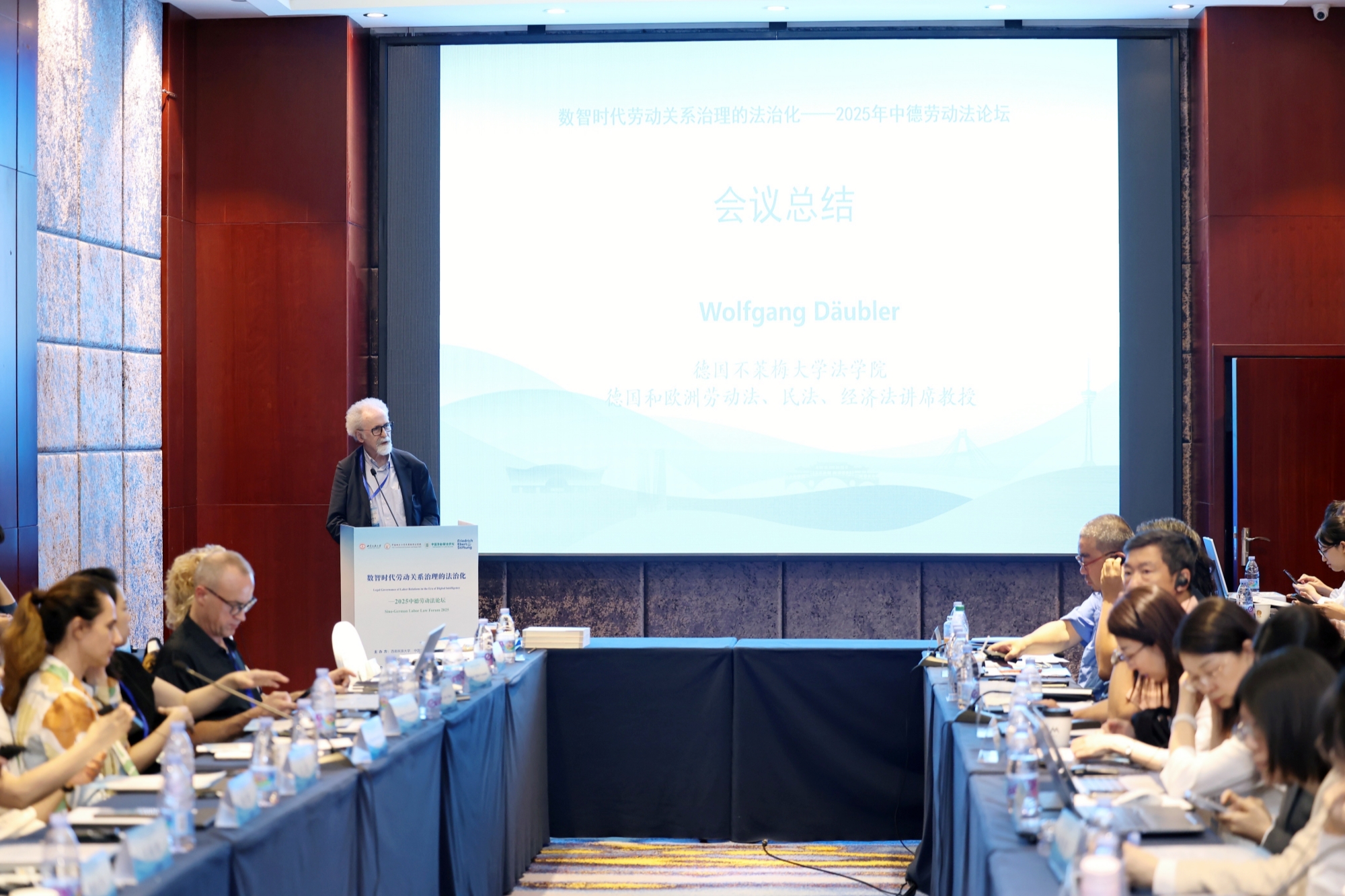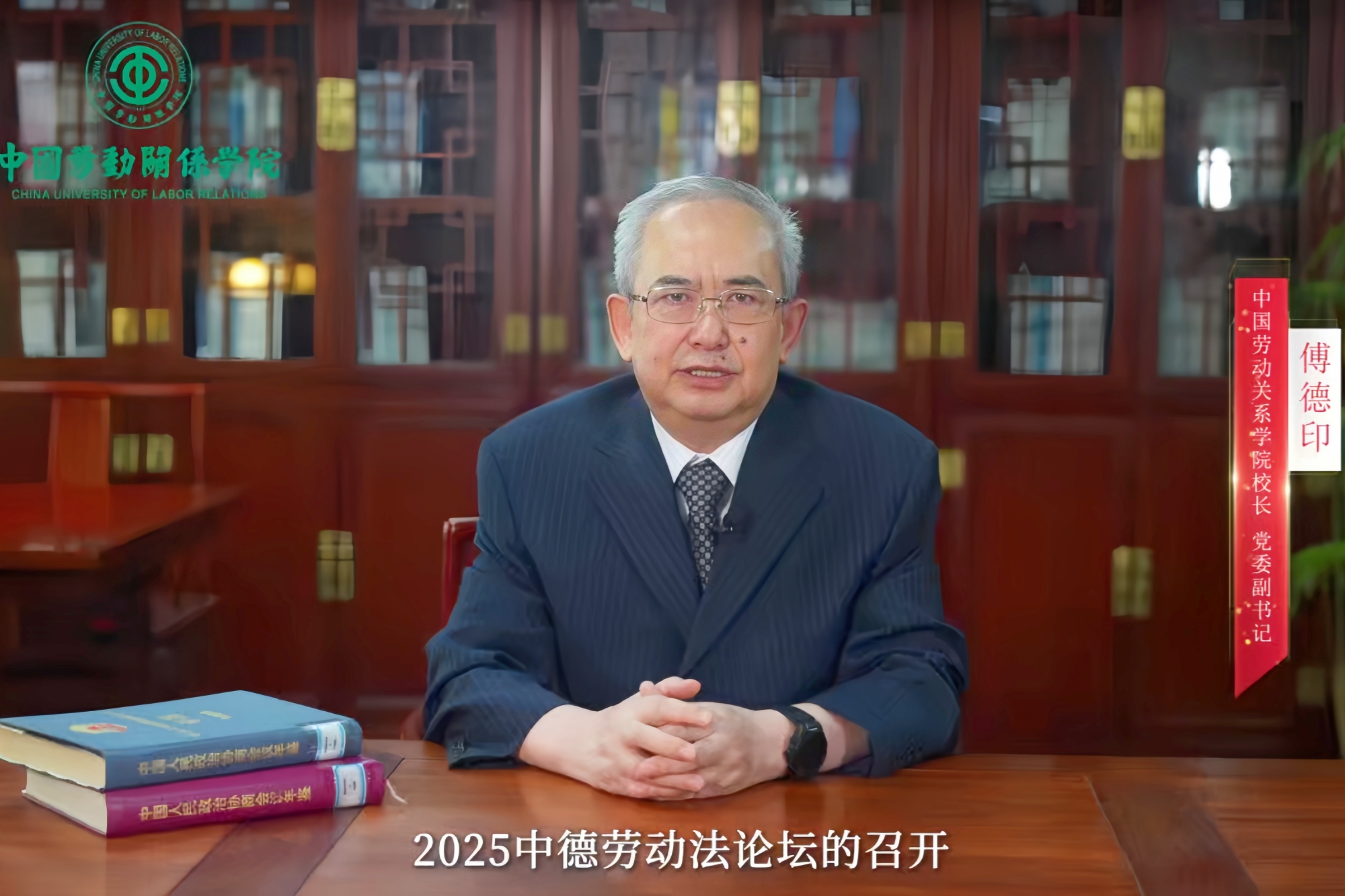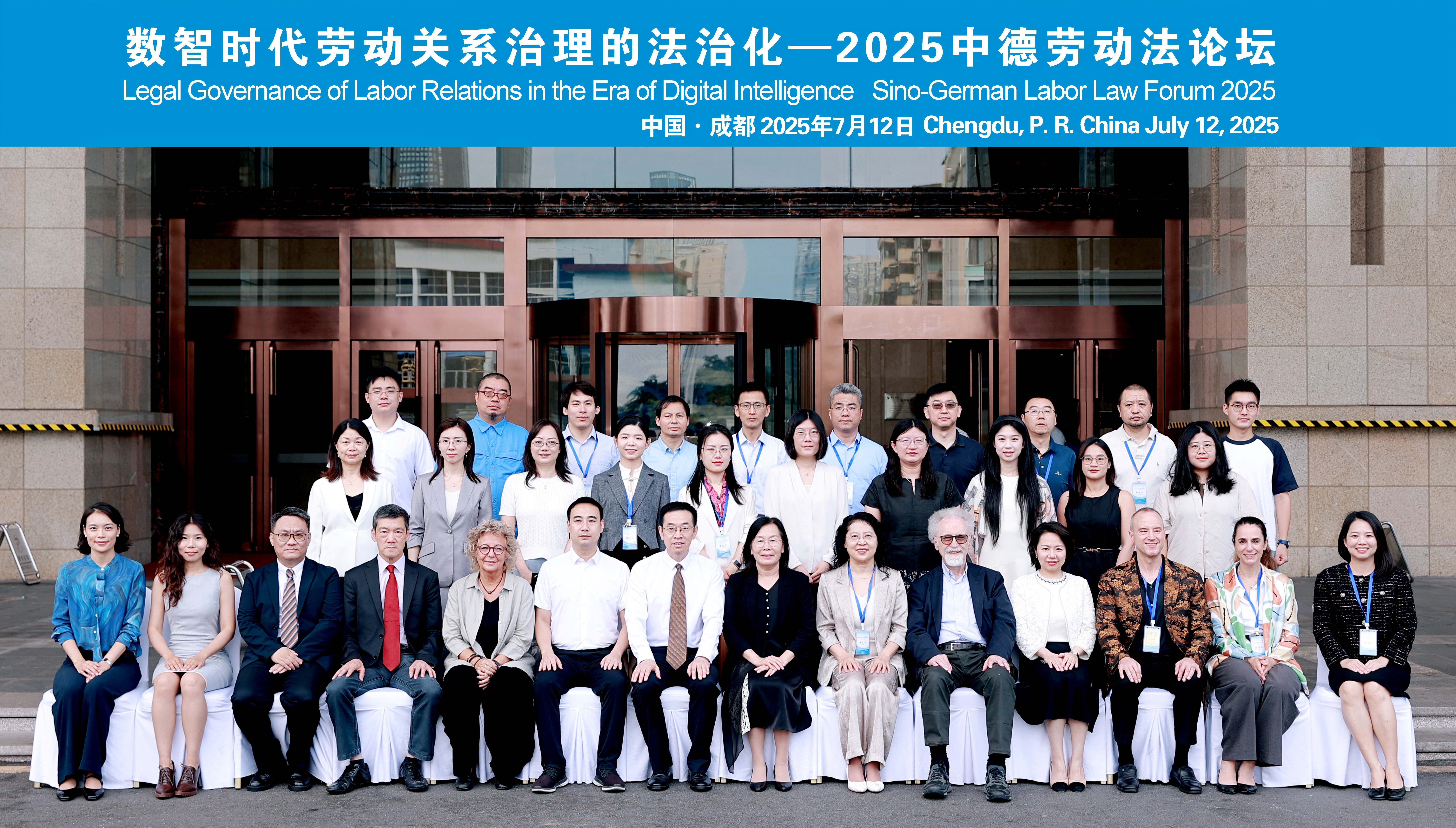On July 12, China University of Labor Relations (CULR), together with Southwest Minzu University, the Civil, Commercial and Economic Law School of China University of Political Science and Law, and the Friedrich Ebert Foundation, co-hosted the Legal Governance of Labor Relations in the Era of Digital Intelligence - Sino-German Labor Law Forum 2025. Professor Fu Deyin, President of CULR and Deputy Secretary of the University Party Committee, attended the forum. More than 30 experts and scholars from Germany, the United States, Italy, France, Thailand, as well as from domestic and overseas universities, including Peking University, Tianjin University, and Sichuan University, and from practical sectors participated in the forum.

In his opening speech, President Fu Deyin introduced CULR and the Law School, covering the scale of the university development approach, distinctive features, and discipline construction. He highlighted that leveraging the "Labor+" and "Trade Union+" characteristic discipline clusters and a high-level faculty team, the Law School has produced a series of representative outcomes and think tank reports, which have been approved and adopted, on topics such as the labor law system for new forms of employment, labor standards, and trade union law. Regarding the forum's theme, he emphasized that the rapid development of digital-intelligent technologies has profoundly transformed labor economic structures, labor relations paradigms, and legal systems. The widespread application of these technologies has raised global attention on worker protection. Trade union work faces both challenges and opportunities, making theoretical support grounded in the rule of law urgent. He encouraged all participants to engage in in-depth discussions, pool ideas, address frontier issues in labor law in the digital intelligence era, provide new perspectives for global governance practices, and promote rule-of-law development.

The seminar comprised three units: "Challenges of Digital Intelligence Technologies to Labor Relations", "Protection of Workers in the Use of Digital Intelligence Technologies", and "Application and Legal Regulation of Digital Intelligence Technologies in Human Resources Decision-Making". At the "Challenges of Digital Intelligence Technologies to Labor Relations" session, Professor Xiao Zhu, Director of the Office of Academic Research and Dean of the Law School, delivered a keynote report titled "Collective Labor Law for Platform-Based Employment in New Forms of Work: International Comparison and Practice in China". In the session "Protection of Workers in the Use of Digital Intelligence Technologies", Professor Shen Jianfeng, Chair of the Academic Committee of the Law School, delivered a keynote report titled "Logic and Approach to Building Rules for the Protection of Workers' Personal Data", and Dr. Chen Cheng of the Law School presented a keynote report titled "An Analysis of the Flexible Development of Labor Security Supervision in the Era of Digital Intelligence and Its Role in Social Governance". In addition, Dr. Feng Qin and Dr. Chen Yijing of the Law School served as discussants in the sessions "Challenges of Digital Intelligence Technologies to Labor Relations" and "Application and Legal Regulation of Digital Intelligence Technologies in Human Resources Decision-Making", respectively.

This seminar marks the fourth Sino-German International Seminar on Labor Law jointly organized by CULR, China University of Political Science and Law, and the Friedrich Ebert Foundation. The forum provided a bridge for exchange and cooperation between Chinese and international labor law communities, offered global perspectives and solutions for legal issues in labor relations governance in the era of digital intelligence, and enhanced CULR's international reputation and academic influence in this specialized field.
(Law School)
